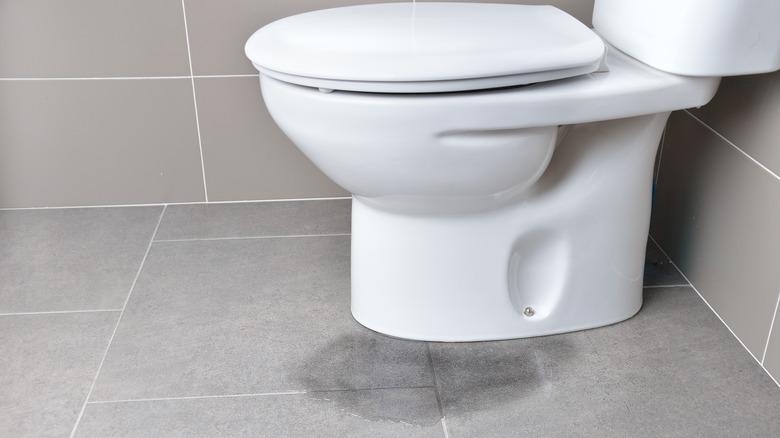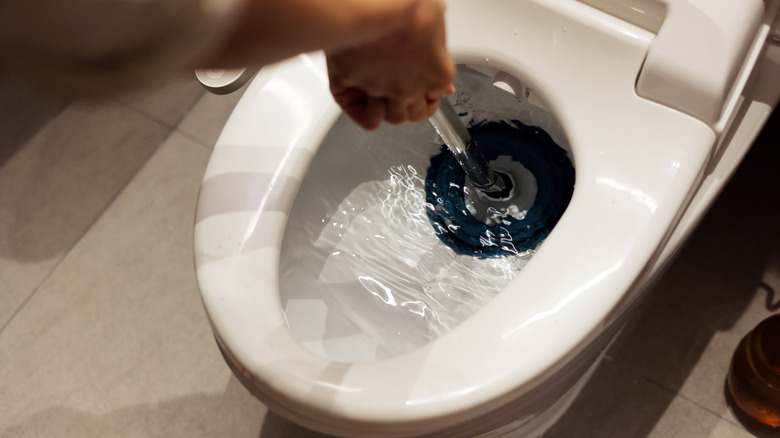You're Likely To Have Plumbing Issues If You Use This Type Of Toilet Paper
Soft, thick, plush, and quilted may be great adjectives to describe a cozy bed, but you may want to steer clear of them when it comes to your bathroom. Many people prefer to use plush toilet paper because it is softer and less prone to breakage, but what makes it soft on your body makes it hard on your plumbing. If you regularly use 3-ply or 4-ply toilet paper, experiencing a serious plumbing issue could only be a matter of time. Most toilet paper is designed to dissolve quickly once it hits the water, but because they have extra thick layers, 3-ply and 4-ply toilet papers tend to clog up pipes, grinders, and septic pumps.
If you've treated yourself to plush 4-ply toilet paper all your life, you might be asking, "Why does it matter? Isn't it better to use a few sheets of 3-ply than a whole handful of 1-ply?" Learn more about why extra plush toilet paper presents a risk to your plumbing, and why you should never flush it down the toilet.
3-ply and 4-ply spell bad news for pipes
While it might be more comfortable to use, 3-ply and 4-ply toilet paper is often too thick to dissolve in sewage pipes properly. Even if the toilet paper only claims to be 2-ply, plush, quilted toilet paper can also be too dense for pipes and septic systems. When it gets wet, ultra-plush toilet paper tends to clump rather than dissolve. This causes clumps to stick to themselves and the pipe walls, eventually restricting water flow and creating a blockage. This harms the plumbing in your house. But does it really make a difference if you have to use more 1-ply to get the job done? Yes, three sheets of 1-ply will still dissolve faster than one sheet of 3-ply.
Some other types of toilet paper to avoid include scented toilet paper, dyed toilet paper, and chlorine-treated toilet paper, which can contain harsh chemicals that kill beneficial bacteria. Additionally, don't toss wet wipes in your toilet, even if they claim to be flushable. Like 3-ply and 4-ply paper, "flushable" wipes tend to have very thick, durable construction. This might make them easy to use and good for cleaning, but they won't dissolve quickly enough in your pipes to go down smoothly. For the same reason, you shouldn't flush paper towels, diapers, cotton swabs, or menstrual hygiene products — they can clog the pipes, get caught in the sewage grinder pump, or even burn out the motor.

